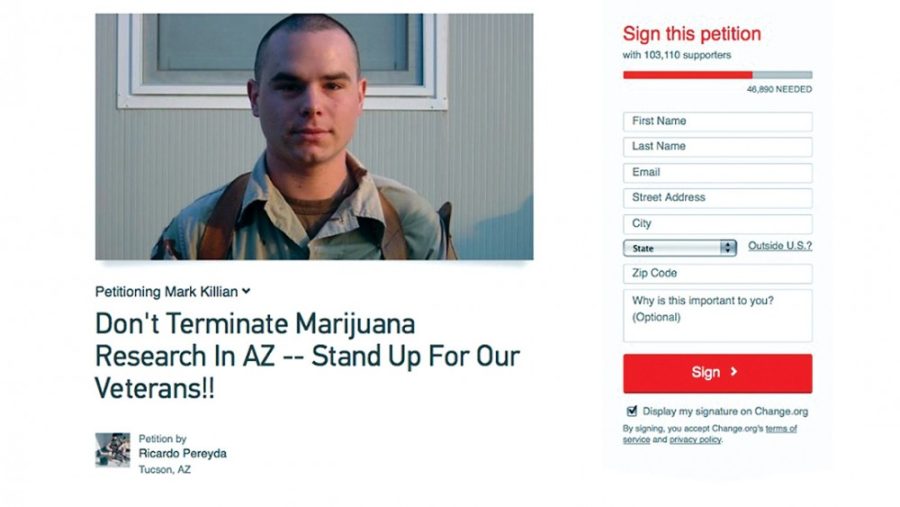Since receiving a notice of the non-renewal of her contract, the study designed by Dr. Suzanne Sisley to test marijuana as a treatment of post-traumatic stress disorder in U.S. veterans has been on hold. Sisley applied for an administrative appeal for reinstatement as a clinical assistant professor at the UA, but the appeal was denied on July 28.
A letter from Andrew Comrie, senior vice president for academic affairs and provost, stated that Sisley’s unpaid status at the time of her non-renewal did not entitle her to a hearing.
Chris Sigurdson, senior associate vice president of university relations, said that it is the UA’s policy not to discuss personnel issues, so it is unlikely that Joe “Skip” Garcia, senior vice president for health sciences, who is responsible for Sisley’s non-renewal, will make a public statement on the matter.
With no chance of Sisley being rehired at the UA, the status of the study is still uncertain. It is unclear if the study will continue at the UA with a new primary investigator or if the study will be moved by the Multidisciplinary Association for Psychedelic Studies to another institution to keep Sisley as the PI of the study she designed.
Despite multiple media outlets reporting that the UA had lost the sponsorship for the PTSD study, Sigurdson said the UA has maintained its contractual agreement with MAPS. According to Sigurdson, the UA is in the process of looking for a new PI for the study, which it would still like to be conducted at the UA.
However, a press release from Brad Burge, director of communications and marketing for MAPS, contradicts these statements. With the rejection of Sisley’s appeal, MAPS said it will keep the study with Sisley as the PI, even if it means moving to a different institution in Arizona, like Arizona State University or Northern Arizona University.
“With no more possibility for reinstatement at the University of Arizona, MAPS will move the research to another university where Dr. Sisley can continue to function as the Principal Investigator,” the press release said.
Now that she has exhausted all paths to rekindle a relationship with the UA, Sisley said she will look to the higher authority of the Arizona Board of Regents.
“Even though the U of A considers this denial final, they’re forgetting that they’re still supervised by a board of regents that has a duty to monitor their activities,” Sisley said.
Sisley said she will appeal to the board of regents to look into her claims of a lack of due process and other actions from the UA. Though the board usually does not get involved in personnel issues, Sisley said she believes the circumstances surrounding her termination merits its involvement under board of regents policy.
Veteran supporters had planned to speak on Sisley’s behalf at Thursday’s board of regents committee meeting, but on the board of regents website, the meeting has since been changed to an executive session, during which there is no call to the audience. Sisley said she believes this action was taken to avoid publicity surrounding a veteran demonstration.
“Veterans feel like they have been harmed by the U of A’s suppression of this research for the last two years,” Sisley said.
Though veterans will not be able to address the board of regents in the coming weeks, Ricardo Pereyda, an Iraq war veteran, has created an online petition that has gained more than 100,000 signatures, addressed to Mark Killian, chairman of the board.









